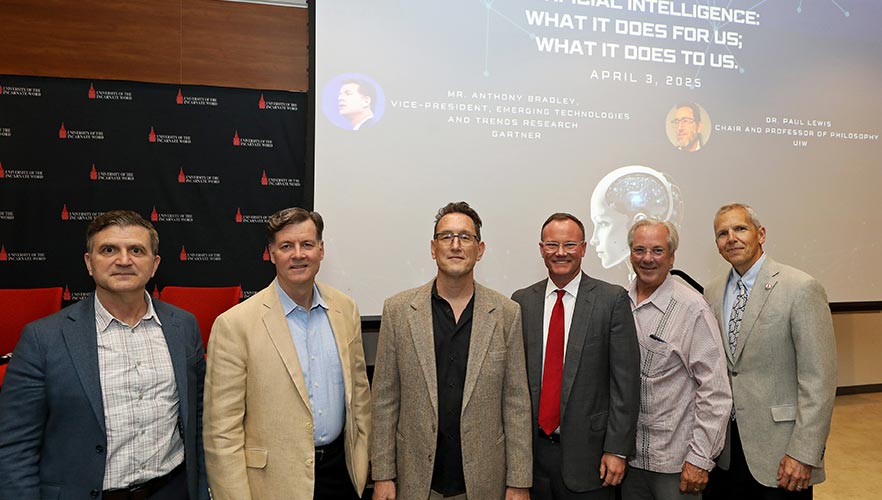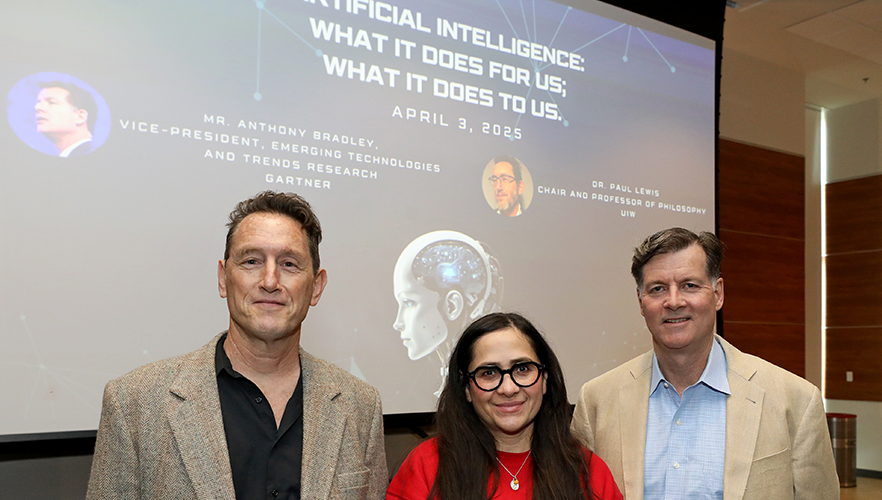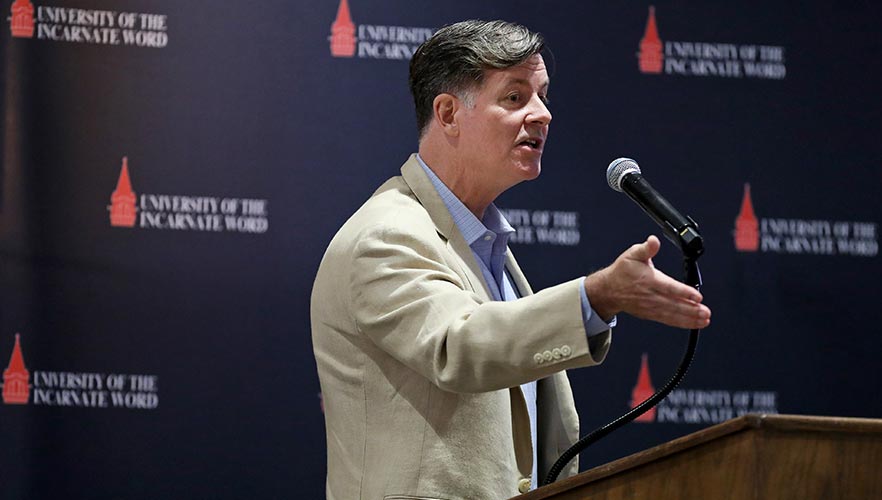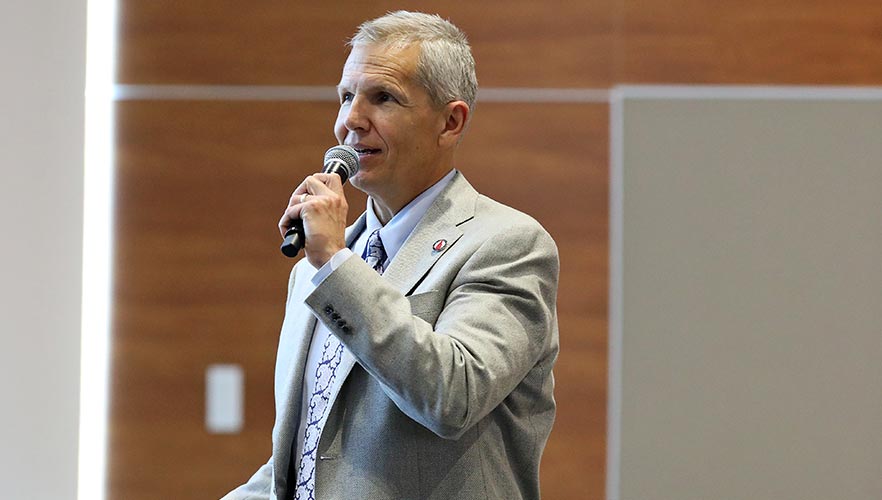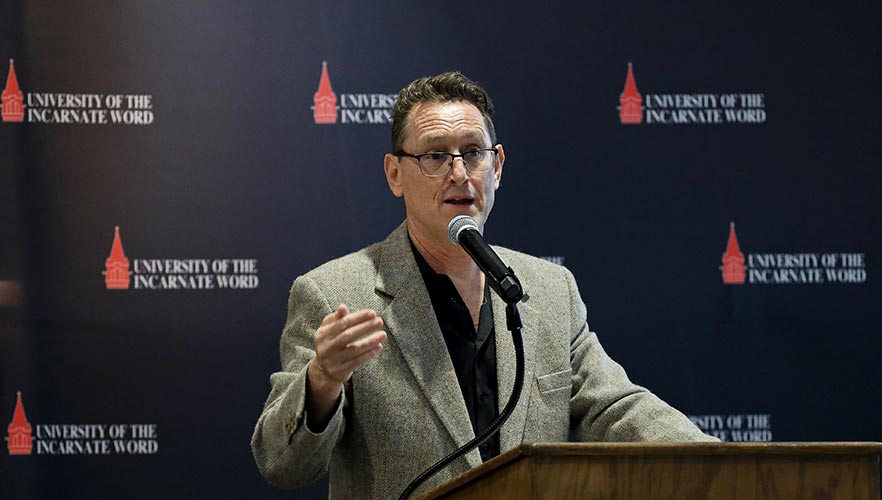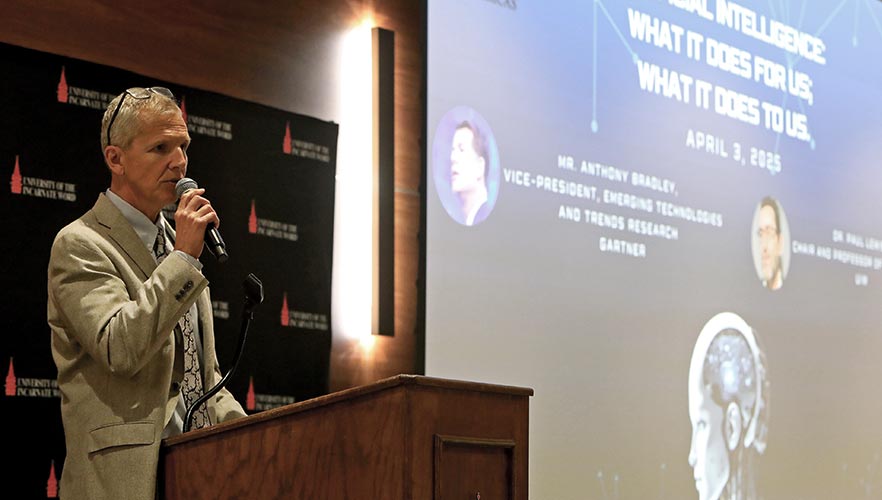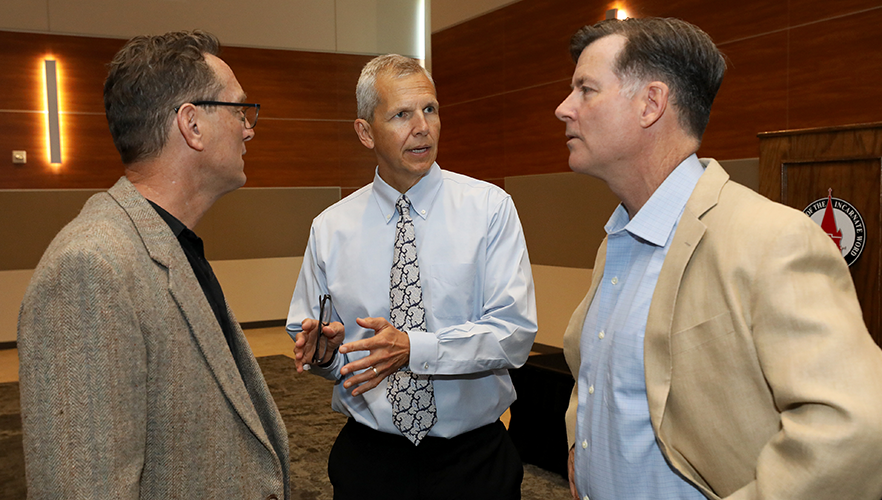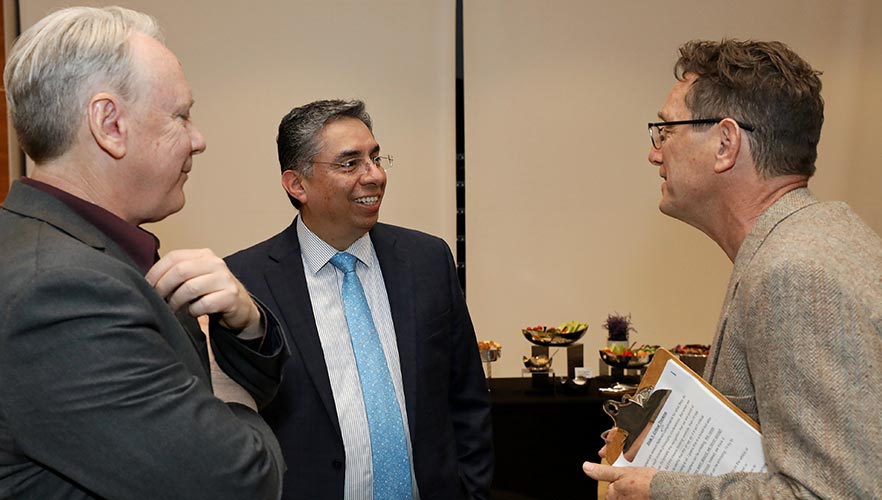UIW Explores the Effects and Possibilities Artificial Intelligence Presents in Our Modern World
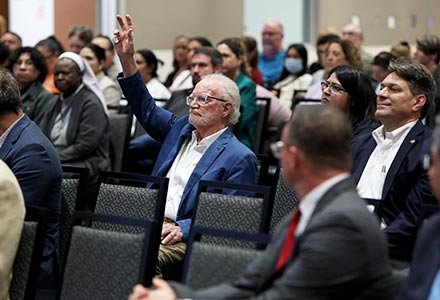 As an institution that is dedicated to educating students who will become concerned and enlightened citizens within the global community, UIW strives to remain aware of the growing demands and advancements that students will encounter in a developing world. Presently, the conversations surrounding the use of Artificial Intelligence (AI) have become more common, presenting both points of interest and concern.
As an institution that is dedicated to educating students who will become concerned and enlightened citizens within the global community, UIW strives to remain aware of the growing demands and advancements that students will encounter in a developing world. Presently, the conversations surrounding the use of Artificial Intelligence (AI) have become more common, presenting both points of interest and concern.
On Thursday, April 3 the Liza and Jack Lewis Center of the Americas welcomed Dr. Paul Lewis, chair of the UIW department of Philosophy, and Mr. Anthony Bradley, vice president for Emerging Technologies and Trends Research at Gartner, to engage in a dual presentation titled “Artificial Intelligence: What It Does for Us; What It Does to Us.” The presentation welcomed members of the community to listen and engage as they explored how emerging technology disruptions are creating new threats and opportunities in health, science, business and education.
“Is AI the sign of a crisis?” questioned Lewis as he opened the philosophical side of the discussion. “We may not be in an AI-induced crisis yet, but surely something is going on. Feelings of widespread excitement and anxiety. People don’t quite know what to think or believe.”
Lewis suggested that it might be more accurate to refer to AI as initiating a “pseudo-crisis.” As news headlines highlight the “looming threat” of AI, a sense of intimidation strikes people suddenly, irreversibly and all at once. However, Lewis suggests that perhaps this phenomenon isn’t the indication of the start of a crisis, but more the end of an older and familiar crisis.
We as a civilization have discovered and preserved drawings made by humans dating back 80,000 years. Lewis refers to these early artifacts as “makings of external durable signs,” which in present times would produce various sides of information. He acknowledged that there are drawings created even earlier in time, suggesting that we are not the first species to do such an act, but we are the last ones standing.
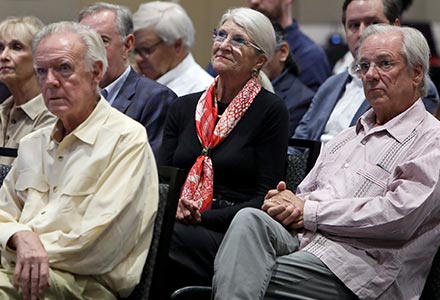 “Within this 80,000-year span, one thing remains unchanged,” prompted Lewis. “Messages never travel faster than the messenger. The message travels with the messenger … It takes 79,819 years for this to change.”
“Within this 80,000-year span, one thing remains unchanged,” prompted Lewis. “Messages never travel faster than the messenger. The message travels with the messenger … It takes 79,819 years for this to change.”
Lewis noted advances in message sharing such as electronically through Morse code, followed by the Transatlantic Cabel, telephones and so on, leading us to where we are today in the present state of AI. He notes that as AI continues to remain a part of reality, it is more effective to consider its impact by thinking about its relationship with ethics, power, justice and ideology.
Bradley followed Lewis, switching the discussion to the more technical side of AI and its effects.
“I advise leaders of some of the world’s biggest companies on what they do with emerging technologies,” began Bradley. “Very often we discuss how to prepare for singularity, the point in which machines become more intelligent than us. I take pleasure in telling people to not worry about the singularity but rather worry about the practicality of today.”
Bradley noted how the human mind is capable and effective at abductive reasoning, referring to the creation of new thoughts, model building and model blending. This is a skill that AI is incapable of doing to any extent. With this fact in mind, Bradley instead encourages others not to consider how AI can be used for bad but how it can be a beneficial tool for good, since we as people have the right to choose.
Bradley went on to note three leading edge evolutions of AI:
- As a generative large language model, AI is trained to speak and communicate in multiple languages. It can also be trained by utilizing provided data to help identify patterns to solve specific needs in jobs like health professions.
- AI can generate realistic simulations that can help people to consider how certain things affect our planet, human body, etc. Through its evolution, AI is getting to a state where it can simulate nearly any request, which can help people to better determine how to better find solutions and more effective approaches to challenges we encounter in a variety of contexts.
- AI offers opportunities for polyfunctional robots: robots that can perform more than one task. These robots will be useful tools in supporting people in various career fields.
With so many innovative opportunities, Bradley acknowledged that some may feel that AI will take job opportunities away from people, to which he reassured us not to worry. “AI is opening entirely new industries that I call hyper-human. These are spaces that we could never occupy until we had AI. These new industries mean that we have to specialize. Find something you’re going to love, and you will succeed!”
Admist the uncertain future, Lewis and Bradley’s perspectives helped to deepen attendees’ understanding of how AI is currently influencing and how it can continue to influence our world.



